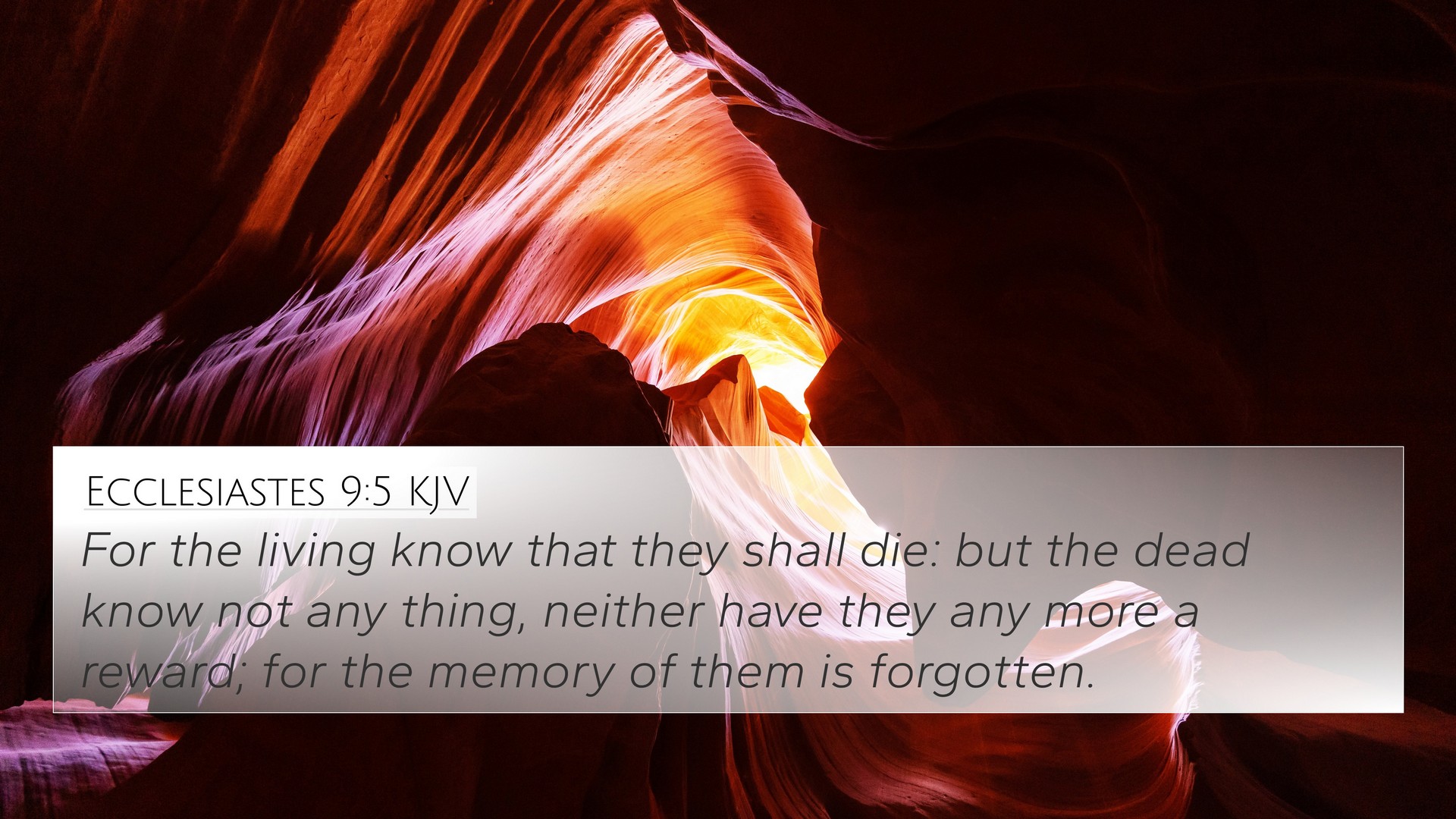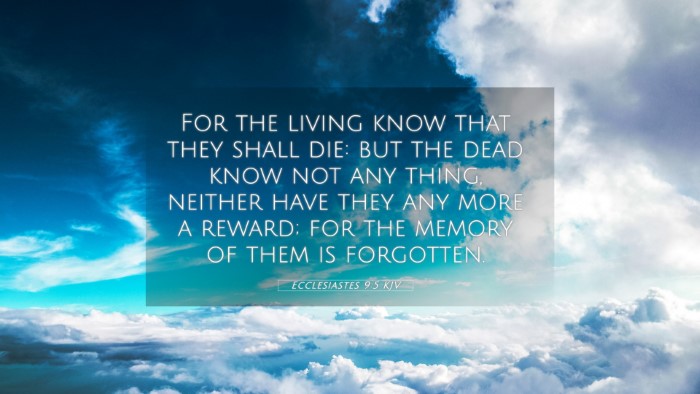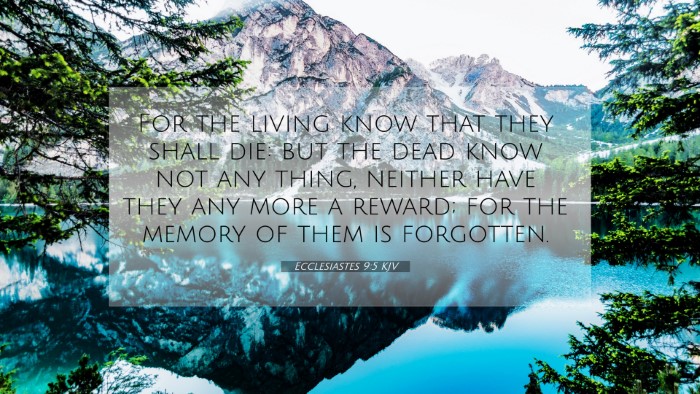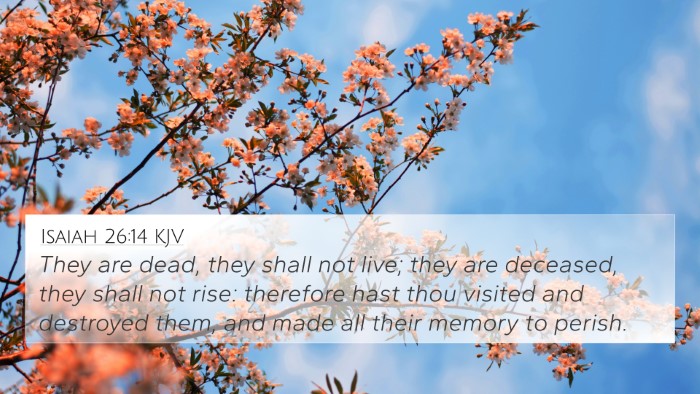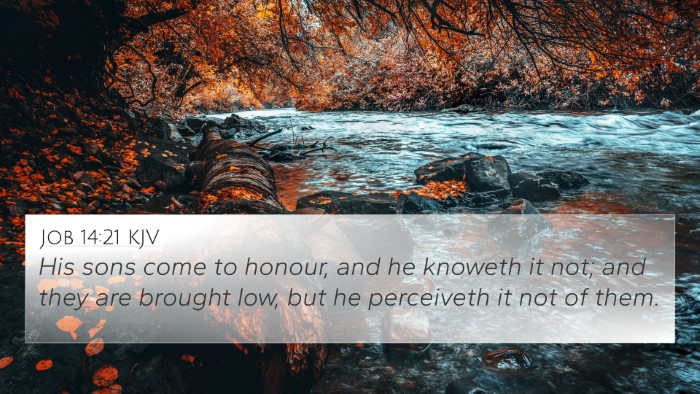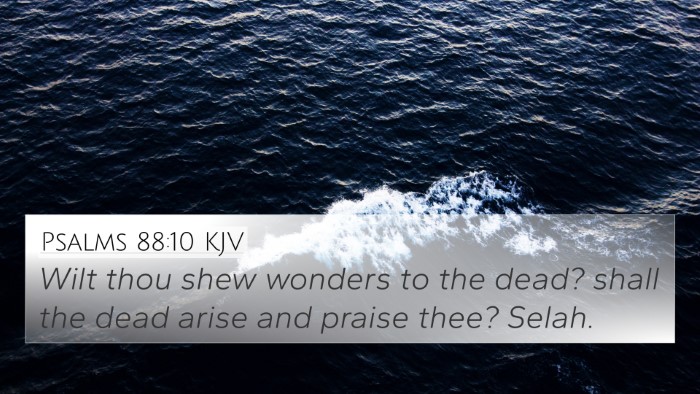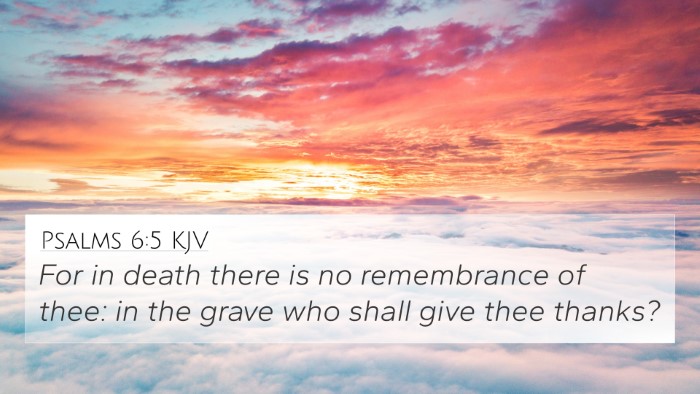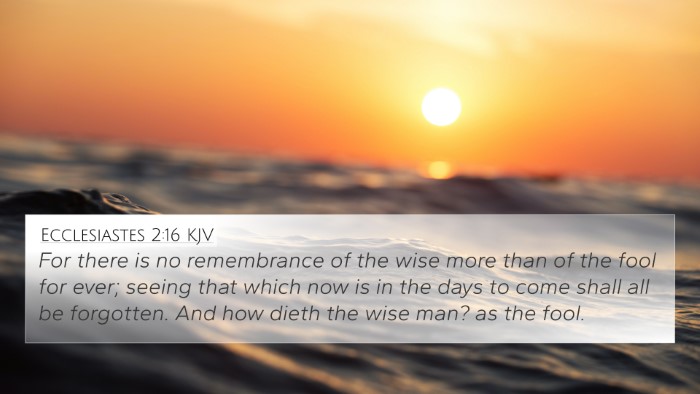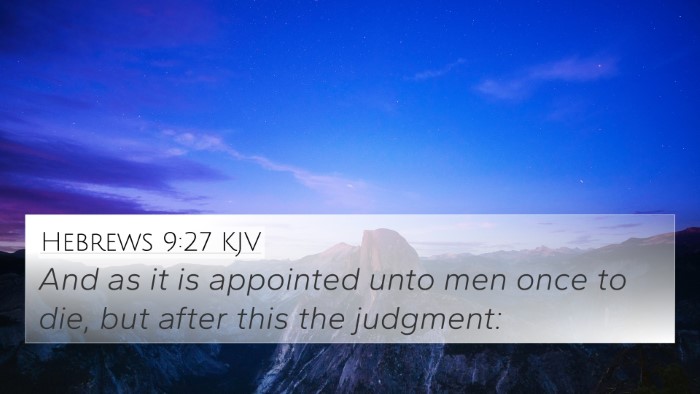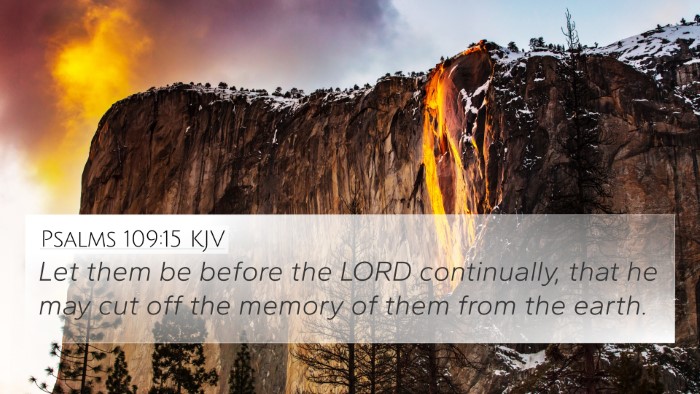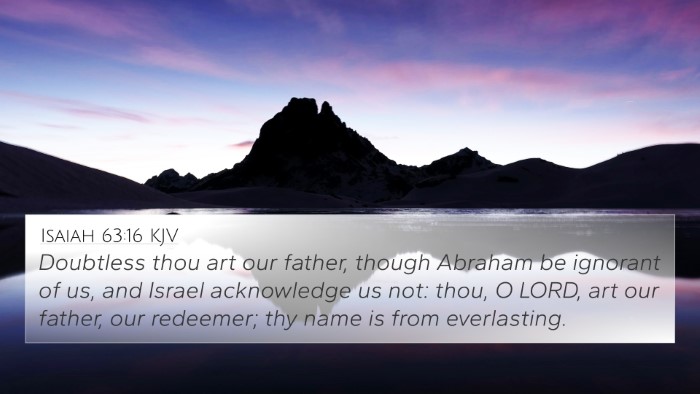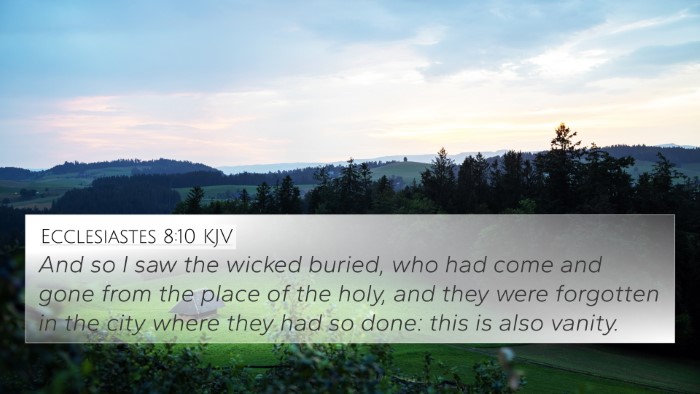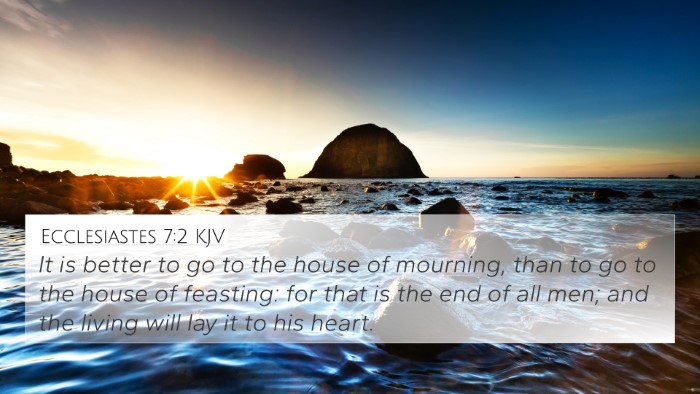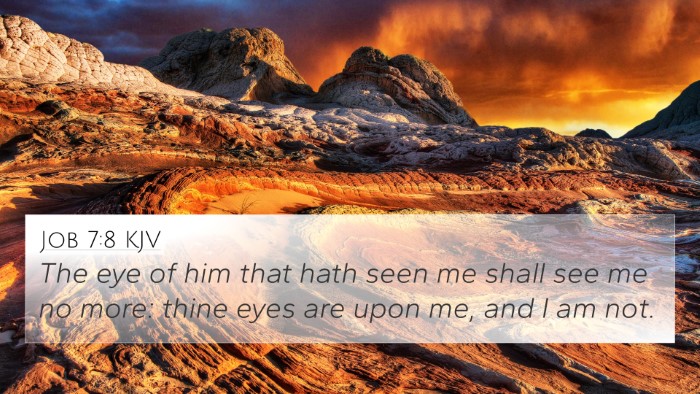Understanding Ecclesiastes 9:5
Verse: "For the living know that they shall die: but the dead know not any thing, neither have they any more a reward; for the memory of them is forgotten." - Ecclesiastes 9:5
The verse presented invites an exploration into the nature of life, death, and the perceptions surrounding both states. The Preacher, likely Solomon, presents his observations on mortality and the afterlife. Here, we will delve into the interpretations and meanings derived from this significant passage.
Summary of Insights
This commentary combines insights from notable public domain sources, including Matthew Henry, Albert Barnes, and Adam Clarke, to provide a comprehensive understanding of the verse.
Matthew Henry's Commentary
- Mortality: Henry emphasizes that awareness of death is a significant aspect of human existence. The living recognize their fate, embracing a life lived in the shadow of mortality.
- Knowledge of the Dead: He notes that the dead have lost their capacity for knowledge and experience. This serves to highlight the transitory nature of life and the finality of death.
- Rewards and Remembrance: The passage indicates that the deceased no longer partake in life's rewards, and their memories fade with time, prompting reflections on legacy and impact.
Albert Barnes' Notes
- Contrast Between Life and Death: Barnes remarks on the stark contrast that the verse illustrates between the living and the dead, urging readers to contemplate the significance of their earthly actions.
- Uncertainty Beyond the Grave: He also suggests that the knowledge of the dead is limited, contributing to the wisdom of cherishing the present and acting while there is still time.
- Implications for Life Decisions: The verse carries implications for how individuals should approach their life choices, driving home the importance of purpose and intentionality in the face of inevitable death.
Adam Clarke's Exposition
- Reflection on Legacy: Clarke provides an analysis that reflects on the legacy one leaves behind. The forgetting of the dead could serve as a motivation to live fully and leave a lasting impact.
- Philosophical Considerations: He philosophizes on the duality of existence, where understanding life’s temporality can help individuals grasp spiritual truths about the afterlife and its implications.
- Emphasis on Living Knowledge: Clarke encourages readers to focus on the "living knowledge," suggesting an enlightening perspective on life’s joys and challenges before death takes its toll.
Cross-References for Ecclesiastes 9:5
- Job 14:14: “If a man dies, shall he live again?” – A contemplation of life after death.
- Psalms 146:4: “His breath goes forth, he returns to his earth; in that very day his thoughts perish.” – Reflecting the same notion of the finality of death.
- Hebrews 9:27: “And as it is appointed unto men once to die, but after this the judgment.” – Reinforcing the inevitability of death.
- Luke 16:25: “But Abraham said, ‘Son, remember that in your lifetime you received your good things...’” – The contrast of life’s rewards and consequences after death.
- Ecclesiastes 3:19: “For what happens to the children of man and what happens to the beasts is the same.” – Commenting on the shared fate of all living beings.
- 1 Corinthians 15:32: “If the dead are not raised, ‘Let us eat and drink, for tomorrow we die.’” – This verse encourages reflection on better living through an understanding of mortality.
- John 11:11-14: “Our friend Lazarus has fallen asleep, but I go to awaken him.” – The discussion surrounding death by Jesus addresses the idea of sleep and knowledge in death.
Thematic Connections
The isolation of the living from the dead offers profound insights into the themes of mortality and the value of life:
- Impermanence of Life: Recognizing the fleeting nature of existence motivates one to prioritize the cultivation of meaningful relationships and endeavors.
- Legacy and Memory: The verse serves to remind individuals to think about what they leave behind and how their lives may benefit those still living.
- Spiritual Reflection: The reflections arising from this passage encourage a spiritual awareness that emphasizes living fully while acknowledging the soul's journey post-mortem.
Practical Applications
How does one apply the insights derived from Ecclesiastes 9:5 in daily life?
- Embrace Life: Understanding the certainty of death encourages an appreciation for life's moments.
- Pursue Meaningful Achievements: Focusing on creating a legacy rather than seeking transient pleasures impacts personal goals and community engagement.
- Engage in Spiritual Practices: Reflecting on mortality often fosters deeper spiritual connections and an exploration of faith.
Conclusion
Ecclesiastes 9:5 provides a sobering reminder of the existential reality faced by humanity. Through a careful examination of this verse, drawing from multiple commentaries, we can appreciate the connections between life and death, and the importance of living with purpose and reflecting on our impact. The insights into mortality provoke deep contemplation, urging believers to engage fully with life while recognizing the impermanence that defines the human condition.
